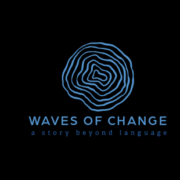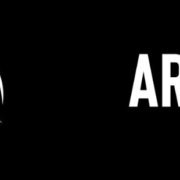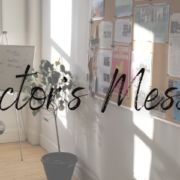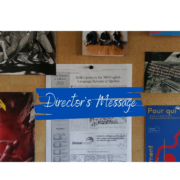Director’s Message – February, 2021
Photo by: Monique Dykstra
Photo flashback: Guy Rodgers with Peter McFarlane, and Ian Ferrier at ELAN’s 2004 Quebec Arts Summit.
We are travelling through uncertain times and uncharted territory. Day-to-day disruptions have stretched into months, and now we are approaching the second year with no certain off-ramp in sight. A shock of this magnitude forces us to confront underlying deficiencies in our cultural ecosystem that were hard to ignore long before Covid-19 stripped them bare. A major disruption is an opportunity to rethink and rebuild our outmoded arts and culture sector for the century ahead. It is both a daunting challenge and an exciting prospect. Part of me regrets that I am leaving ELAN next month. Another part of me knows that preparing for the future is work best entrusted to people who are going to spend most of their lives there.
My last project with ELAN is about identity, belonging and remembering. We have been bringing together discussion groups (scrupulously following health and safety guidelines) and filming the conversations. The discussion groups are structured around waves of immigrations. Participants in the first group, filmed in December, were from families that arrived in Quebec prior to 1945 (some from the early 1800s, for example Scots who farmed the remote region that is now NDG — see image below). Nine of the ten participants in the second group that arrived between 1945 and 1970 came from families with ‘allophone’ mother tongues. How did they end up as part of the English-speaking community? You’ll find out when we release the videos in March. The next four groups will focus on families that arrived in more recent periods under an evolving social contract. They have all made their mark on their chosen home and contributed to building modern Quebec, and yet some feel that their efforts have not been recognized or that they do not fully belong here.
It was the 50th anniversary of the Front de libération du Québec (FLQ) crisis last fall as we were booking participants for the first two discussion groups. People my age and older vividly remember the social upheaval leading to the crisis of October 1970, the heady referendum of 1980, and the gut-wrenching rematch in 1995.The Quebec they were born into is almost unimaginable today. While some of us have stayed and adapted to a new world, hundreds of thousands of English-speaking Quebecers left. After spending my entire adult life trying to make sense of this crazy, complicated place we choose to call home, I am honoured to collect these important stories– old and new–and to share them as my final project with ELAN. I’m not making any bets on how the future will emerge, but a clear-eyed understanding of the past and present is a good foundation to build on.
Guy Rodgers
Executive Director
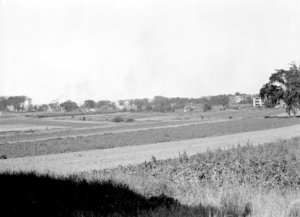
Snapshot of Rural Sherbrooke West in the 1800s


